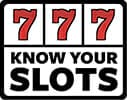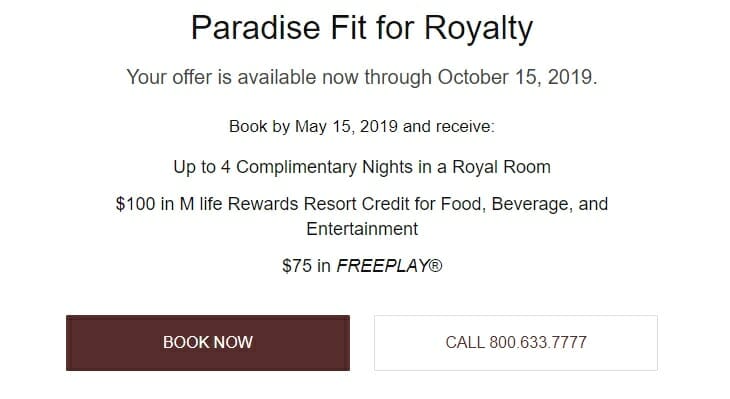We’ve talked here in the past about some of the ways you can maximize casino offers. But for those who want to understand the various ways casinos examine us as players, this post is for you.
We’ll take a look at some of the information that matters most to casinos, and how you can use that to your advantage.
The (Casino) Law of Averages
Before we get into specific calculations, one thing casinos will do is take a look at all trips within a certain window of time (for example, a year) and come up with an average. If you low roll one trip and bet big another, they’ll blend the two together. The more often you visit, the more trips they have to work with.
That’s one reason why we previously recommended considering not going quite as often and bringing a bigger bankroll – you’re not diluting your average with trips where you have a lower budget and a higher risk of busting out early. As you’ll see as we dig deeper, how long you play can matter to some casinos.
Some casinos are more sophisticated, and use a weighted system, factoring in age of visits to put more emphasis on recent play – if your spending has been rising, your offers may reflect that recent history and give you a more favorable one than a straight average would dictate, in the hopes you might continue to spend above the average.
Your Losses
Some casinos just outright look at how much money you’re leaving behind. After all, that’s a very quick understanding of how much you’ve given them over your trips. But it’s a pretty blunt force instrument, and if you have a winning trip or winning streak, your offers will become non-existent.
As such, many casinos will factor this into the math, but they won’t solely rely on this because blacking out people who win doesn’t give them a chance to woo them back and hopefully get it back over time.
Your Total Coin-In
The amount you bet is important to many casinos, particularly when it comes to slots. It’s not as easy to track with table games, but you’ll see pit bosses scan tables and enter in bet sizes periodically so they can figure an average bet and time on table.
The more bets you make, the more times you expose your money to the house edge on a given game, and the less likely short term variance will lead you to bigger winnings than average (or bigger losses for that matter) – over time, you’ll simply get closer and closer to the expected average loss.
So many casinos will look at the amount you’re betting as part of a common formula we’ll discuss shortly.
Bet Size
Linked to coin in is your average bet size. If you make one $500 wager, that’s looked at differently than 500 $1 wagers, for the reasons outlined above. A one-time $500 wager on a nearly 50:50 bet isn’t that interesting to a casino, but 500 $1 bets on a slot machine, which has a house edge of 10 percent, will be much more important to a casino by comparison.
Many people think the size of the their bankroll, or what they lose, matters, and as noted above some casinos care about that. But casinos actually want you to play awhile because it increases the chances they’re going to get to keep a portion or all of your bankroll the longer you play.
How Long You’re At the Casino
Many people will share stories that their host recommends playing for four hours to maximize their offers and chances for other things like back-end comps. The reason for this is because of what we just noted – longer amounts of play will counteract any short term big wins or losses and bring you closer to the expected amount of the loss.
As such, casinos tend to look unfavorably at hit and run play – they would prefer to see you stay for awhile, and will generally generate better offers for those that do.
What Game(s) You’re Playing
If you’re a slots player, you’re playing games that likely have a higher house edge than just about anything else you can play. If you’re playing Blackjack or Baccarat, you could be playing games with a much lower edge.
Bet size matters too – playing $100 a hand Blackjack is putting a lot more money at risk over time than playing a $3/spin slot machine, but you can play a lot of spins in the time it takes to resolve a Blackjack hand as well, and on a higher-edge game.
As such, casinos will factor in what you’re playing and account for it accordingly in determining offers.
Gaming Day
Finally, most casinos have what they establish as a “gaming day,” which usually differs from a standard midnight to midnight calculation as many casino players will gamble later in the evening. 6 a.m. to 6 a.m. is common in places like Las Vegas, but some casinos have other start/end times.
It’s good to know what this is at the casino you’re playing at, as once the new gaming day starts, all your play for the previous day is lumped together and your play on the new day is counted separately for another daily addition to your gaming history.
The Magic Formula: Average Daily Theoretical (ADT) Loss
The general idea behind ADT is that a formula analyzes much of the above to determine:
- How much you’re betting
- For how long
- On what games
With those three pieces of information (or alternatively total coin-in on what games can work equally well if you have that data), you can calculate the expected loss for a given day. That’s if the math works perfectly involving the house edge, but we know short-term variance could mean you do better than the expected loss, or worse.
But the math always works in the long term, so casinos that use an ADT calculation in its offer generation knows that given enough visits and time on the casino floor (or bigger picture all of its players coming to the casino), the math will increasingly work in its favor, so a short-term win by a player isn’t anything to really fear.
Caesars properties are more known to use an ADT style calculation. There have been reports in the past that MGM will hack down offers for players who have won a lot of money in recent visits, only restoring them if they lose money later. So MGM does seem to put more weight on the win/loss amounts.
What to Expect From Comps
Generally a casino will provide offers that are roughly 20-30% of expected loss. This is an all-in calculation, and can factor in room offers (and whether you take them), resort credits or food and beverage offers, freeplay, any gifts they may offer, etc. If you accept offers and don’t play to the level they have in your average, you’ll be considered “overcomped” and the offers will drop; conversely, if you play above what the offers expect and above your average, you would generally see your offers improve to reflect the higher average.
If you’re just a casual player, you shouldn’t stress too much about this – most comps are based on previous history, so you’ve already earned them! Enjoy what you’re being given. But for those trying to maximize comps, pay close attention to the numbers and you’ll see how changes in your play can impact the offers you’re receiving.
What was the best offer you’ve ever received from a casino? Share in the comments!








I bombed $4,000 trying to hit the bonus with $200 bets on a slot machine at a Horseshoe (Caesar’s) casino at the end of 2019 (and another $2,000 trying to get it back). In 2020, they have sent me hundreds of dollars a week worth of freeplay and/or gifts since like February, although I haven’t been spending as much of my own money as I was and the offer amounts are getting smaller.
I hit a bunch of big wins at an MGM in 2018 and 2019, and they used to send me all kinds of offers, but not as big as the Horseshoe offers, and they have been shrinking a lot lately.
I’ve spent more time gambling at the MGM.
It seems to change from month to month.
I’ve found Horseshoe to be more generous, but maybe that’s because I lost like $6,000 in one month there.
I have the highest tier card level, at Wynn, Black card, I have been going 1 time per week now for about 5 months, also might add, I obtained my black card in 6 months, which they give you 12 months before they reset teirs, My average win/loss for a month, is about 140k in and 120 to 150k out. I play for about 5 to 8 hours when i go, and i accept a room offer 1 time per month, if that.. so id average the room offer 1 every 2 months. I do not really accept the gift, if it is clothing, as it is usually 3 times per month, so 1 gift per month. That being said, my weekly free play is 400, and then the next week 800. but only if I played the week before when it was 400, if i skip that week i get nothing on the second week. no 800. I expect my weekly free play to increase to the 800, as im betting 50 per spin at max, and at little 10. average around 20 per spin. for 5 hours per week. I usually bring with me 2 grand to bet. I have had a few hot streaks, 16k win a few weeks ago, take home was 16k, the entire night i hit 31k on handpays, another was 2100 in, 13k in handpays, left with 3100. also the 16k was started with 800 in free play, never touched my own cash the entire trip. What should I be getting for free play is why i searched this, i feel im not reaching what I should.
Hi Ivan! The general rule of thumb about offers at a high level is they tend to be worth 20-40% of your average theoretical loss, incorporating free play, hotel rooms and any other benefits like food and beverage.
You mention a budget of $2,000 you bring to bet each visit, and are receiving offers of $400 to $800. Those numbers just happen to work out to 20 and 40 percent, respectively, of your $2,000 budget. The midpoint is $600, or 30 percent, given you get $400 and then $800. You occasionally also partake in a room, so based on those figures you’re probably in the right ballpark for offers, just doing some rough math.
I do wonder if it matters where the person lives. So in the case of Ivan, is he a local or from out of the area?
I spoke to a casino marketer who told me some casinos do factor in distance. After I wrote this piece I wrote one specifically about the distance element, found here:
https://www.knowyourslots.com/distance-and-casino-offers-revisited-length-of-play/